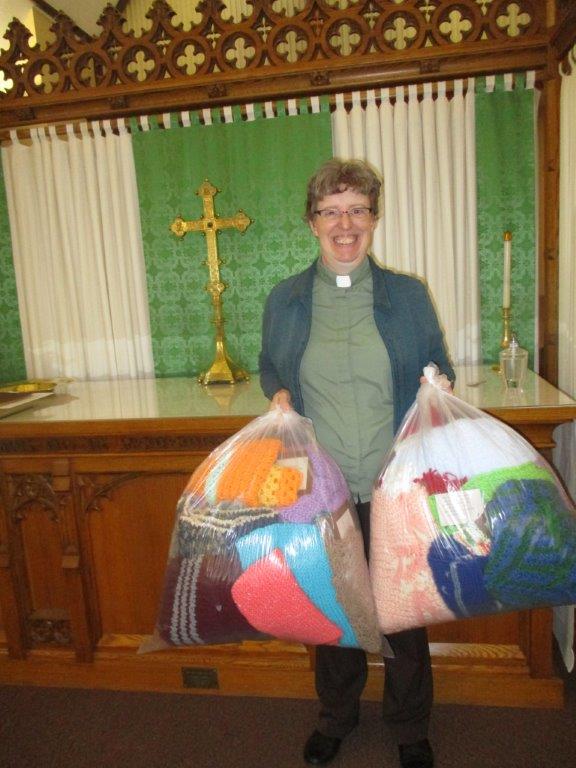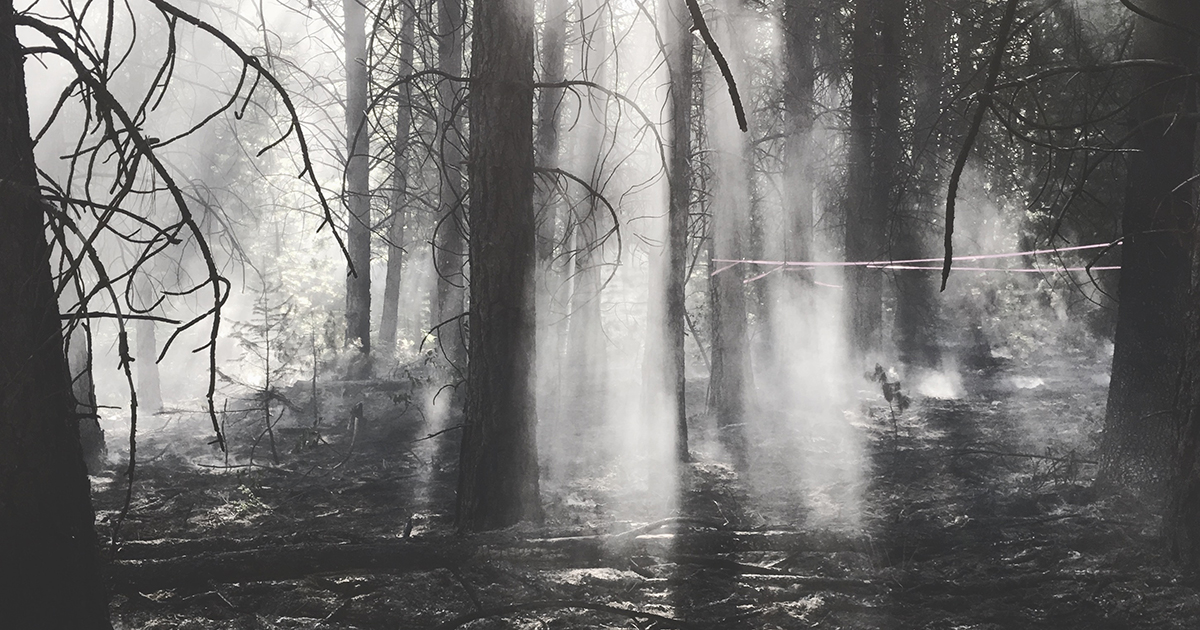The following is the conclusion of a two-part story detailing the experience and aftermath of the B.C. summer wildfires from an Anglican perspective. Read Part 1.
Though the height of the summer wildfire season in British Columbia may have passed, the efforts of communities to rebuild in its wake remain ongoing.
Anglicans residing within the Territory of the People have been on the front lines of devastation caused by the fires. Driving out to St. Luke’s Anglican Church in the Chilcoten area, the Rev. Kris Dobyns witnessed the scope of the damage firsthand.
“It was awful driving out there,” Dobyns said. “You could just see the burned trees on both sides … You could see maybe a chimney and a fire place, and the whole house just burned to ashes.
“We saw a place where there were six or seven cars just completely burned out … just devastating. It’s going to take years to recover.”
All residents in the area were affected by the large amounts of smoke that billowed into the air over a protracted period. The poor air quality could reach dangerous levels for weeks at a time, putting at particular risk those with respiratory health issues.
Meanwhile, the effect on livestock threatened the livelihood of ranchers, with many of the 35,000 cattle in fire-affected regions remaining unaccounted for.
“A lot of our folks who are ranchers are of course devastated,” episcopal commissary Ken Gray said.
“They’ve lost fencing, they’ve lost animals, they’ve lost grazing land, they’ve lost forest cover … In terms of the area the territory covers … the effect on ranchers and the effect on the forest industry is huge.
“That’s going to affect local economies, and it’s going to affect parish fiscal stability as well.”
In Kamloops, where Gray serves as dean of St. Paul’s Anglican Cathedral, the city has experienced a significant increase in homelessness. Many have been displaced from their home communities, and Anglicans active in shelter ministry are expecting an increase in demand. Some workers have opted not to return, prompting a labour shortage in communities such as Williams Lake and Cache Creek.
The economic repercussions of the fires are prominent in the mind of the Rev. Jim White, a retired Anglican priest and non-Indigenous pastoral elder who sometimes provides ministry to the First Nations community in Lytton, as well as at an ecumenical parish in Logan Lake.
“My biggest concern right now is the number of small businesses that are going to survive the next year,” White said. He offered the example of Cache Creek Golf Course, which recently closed because not enough people could reach the golf course to provide the necessary revenue for it to stay in business.
“I am somewhat pessimistic that the businesses that are in existence today will be here a year from now,” he added.
In response, local Anglicans are making a push for residents to “buy local” in order to support small businesses in the area.
Community solidarity
At the peak of the fire, residents worked together to help each other out wherever they could. During the month of July, White’s son putting in 1,300 hours of volunteer hours as a volunteer firefighter along with his crew.
At another point, when the town of Ashcroft lost utilities, including electricity and phone service, his neighbour used a portable generator and extension cord to help people recharge their mobile phones.
“It’s things you don’t think of,” White said.

In the wake of the fire, affected communities have worked together to rebuild and persevere. The decreasing level of wildfires since summer has in its own way helped restore a greater sense of normalcy for residents.
“Anxiety levels are significantly reduced,” Gray said. “Air quality has significantly improved. Really, especially in the smaller communities, folks are getting back on their feet.”
Nevertheless, the emotional toll has affected many residents and prompted the creation of mutual support groups. In Williams Lake and 100 Mile House, Dobyns and her husband Keith have attended meetings as part of the 2017 Wildfire Recovery Mental Health Working Group, with pastors’ fellowships in both towns working to address mental health issues amidst the recovery.
Anglicans in other parts of the country have also come together in a variety of ways to provide aid for communities impacted by the wildfires. Gray said the Territory of the People has received donations totalling more than $35,000 from individuals and organizations such as the Primate’s World Relief and Development Fund, with the money being sent to clergy for use in their discretionary funds to help individuals resettle and rebuild.
A moving symbolic gesture came when Dobyns attended the recent provincial synod executive council as a delegate and saw more than 70 prayer shawls brought by a priest from Vancouver Island, whose parish had decided to make the shawls to help support the Territory of the People during the fires.
Taking six of the prayer shawls back to the cathedral, Dobyns distributed them at a joint annual worship service and potluck for the 100 Mile House and Williams Lake parishes. The shawls were received so enthusiastically that she planned to return and pick up more.
“People were so moved to receive those … It is so comforting to know that people have been praying for you, and to wrap yourself in what feels like a blanket of prayers,” Dobyns said.
‘New normal’
With the continued exacerbation of wildfire seasons due to climate change, B.C. communities are pondering how they might minimize further wildfire damage in the years to come.
Later this fall, St. Paul’s Cathedral in Kamloops will host a meeting of community leaders and care providers to examine lessons from this year’s fires and how they might incorporate them moving forward.
“Something like this is going to be the new normal, and we’re wondering what we can do now to ensure an effective and appropriate response next year,” Gray said.
“Both in Prince George and Kamloops, I think the community response was extremely good,” he added. “Folks mobilized very quickly and very effectively. But we’re going to have to organize not just for this year, but … for the foreseeable future. I think that’s worth noting.”
Interested in keeping up-to-date on news, opinion, events and resources from the Anglican Church of Canada? Sign up for our email alerts .

